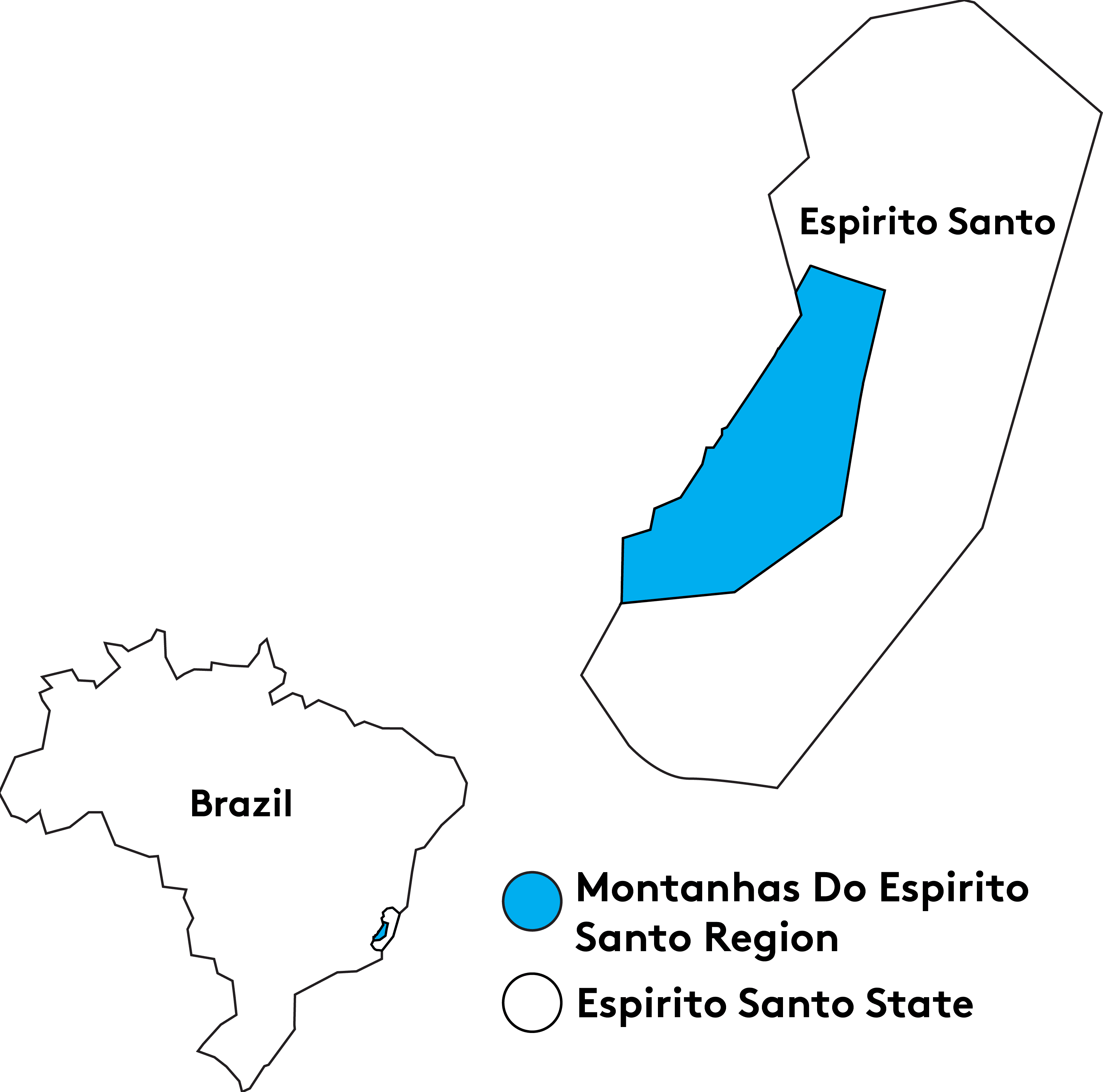Marechal Floriano is known as City of the Orquideas because of the beautiful examples it produces of the flowers, a city that includes a vast extension of the Atlantic Forest preserved in a mountainous region with a climate kept temperate by the constant cool breeze. The city is split by the Rio Jucu, renamed the Braço do Sul, and was colonized by Germans and Italians.
Estevão Denizar Douro is 55 years old and has worked in coffee for as many, saying, “I was born into the work of coffee!” He is dedicated to Sitio Denizar, where he produces some of the best coffees of the region of Victor Hugo in Marechal Floriano.
His coffee history begins with his family property in Marechal Floriano and took an important turn in 2011, when Estevão started the steps to reach better results and add value to coffee. Once he took an interest in learning, he sought specialized technical support to improve his production. On one lap around the property he proudly shows the first separation tank and then the well made depulper.
After he began these labors to produce specialty coffee, he spent three years fully learning the tasks and was among the top ten in all cup contests he entered. In 2014 he won his first prize in a municipal contest, taking first place with 92.5 points and third place with 89 points, which motivated Estevão to never stop perfecting his process, earning additional awards in 2015 and 2016.
The Arabica varietals Catucaí 2SL e Catuaí 44 on the farm number a total of 26,000 trees. Owing to the care taken after the depulping and drying, all varieties are sold as specialty coffees. In 2017, despite low yields, the farm produced coffees scoring between 87 and 93 points.
Currently, the property has 42 hectares with an average of 25-26,000 trees producing an average of 250 bags total, with more than 70 bags of specialty. Because the farm is family operated, there is not the manual labor available to increase levels of specialty because Estevão avoids outsourcing.
The expectation is to continue producing quality coffees and Estevão offers the following advice for those starting out: “you have to have knowledge and work according to that knowledge. If you pick coffee, sort coffee, deupulp it, and don’t take care of it on the patio you will be stuck! It always has to be monitored and kept clean, meaning don’t walk all over it as it dries!”
With the help of his two sons, 24-year-old Thiago who studied administration and every year increases the farm’s professionalism, and 29-year-old Denizar, who studied coffee cultivation to help his parents transition to specialty production and twice went abroad to help his parents improve post-harvest processing, fermentation was tested with positive results, an example of knowledge acquired during his son’s travels.
Without the support of his wife Maria Penha, such results would not be possible and he notes that, “it’s her who does the most work!” She takes care of the coffee drying oven and the micro roastery on the farm.





